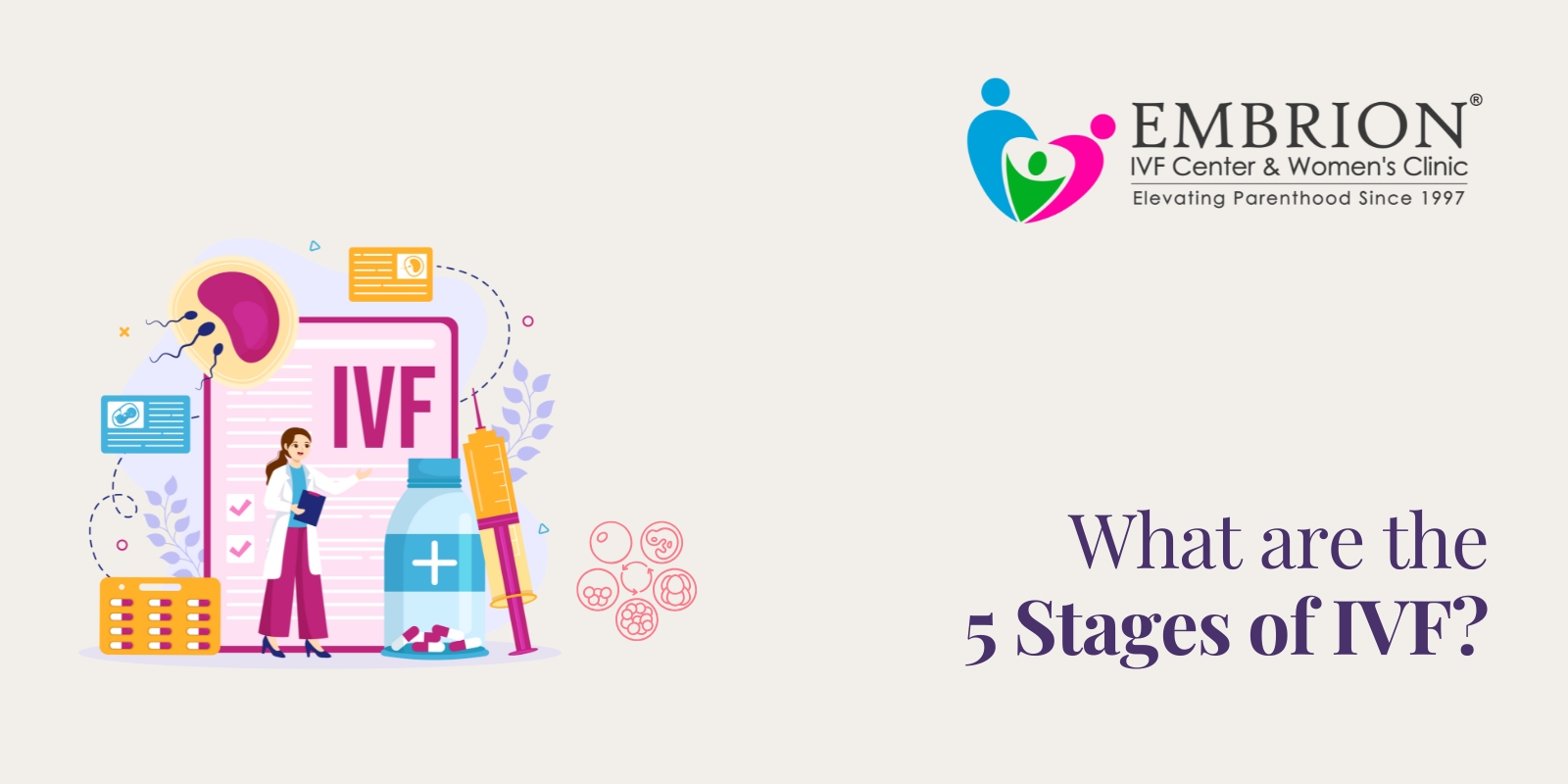In vitro fertilization (IVF) gives hope to couples struggling with infertility. Embrion IVF Clinic, with its scientifically enhanced processes of IVF Treatment in Ahmedabad, creates a life that avoids natural conception methods. Understanding the process is essential for mental and physical alertness. So, What Are The 5 Stages of IVF, and what does each involve? Let’s discuss it.

Developing multiple eggs is the first step of IVF. An ovary produces one egg per month! But to improve the chances of successful fertilization, more than one egg is required for IVF.
Your fertility doctor will prescribe hormonal drugs to stimulate your ovaries to produce various eggs. These medications are given using injection, and the dosage is meticulously regulated.
During this time, analytics include frequent ultrasounds and blood tests to monitor the growth of the follicles (fluid-filled sacs that contain the eggs).
Mature eggs are then extracted through a minimally invasive procedure. This stage is essential because the number and quality of the eggs will directly impact the success of the IVF cycle.
The egg retrieval procedure is scheduled by your fertility specialist about 34–36 hours after you receive a trigger shot (an injection that prepares the eggs for release).
To extract eggs small needle is pushed through the vaginal wall and into the ovaries under ultrasound supervision.
This is the essential procedure in the IVF process. The retrieved eggs are fertilized with sperm in a monitored laboratory atmosphere.
The specialist combines the eggs and sperm from your partner or a donor. Fertilization is of two types :
Conventional IVF : The eggs and sperm are mixed and put into a dish, which allows for natural fertilization.
ICSI (Intracytoplasmic Sperm Injection) : A single sperm is injected directly into each egg to help it fertilize, frequently used in instances where male infertility is a factor
After fertilization, the embryos are left to develop for around 3–6 days and are monitored for their growth and quality.
When the embryos reach the blastocyst stage (about 5 days), one or more embryos are placed in the uterus. This is a crucial phase in the IVF procedure.
Your specialist will use a tiny catheter to implant the embryo(s) carefully into your uterus. This process is typically pain-free.
Your doctor will explain how many embryos to transfer, given your age, medical history, and the quality of your embryos.
You’ll be instructed to rest for a short period after the procedure, usually returning to regular activities in a day.
This final stage determines if the IVF process has been successful. And we must all have patience and emotional grit.
A blood test is done to check your hCG (human chorionic gonadotropin) levels or tell if you are pregnant about two weeks after the embryo transfer.
If the test shows a positive result, follow-up ultrasounds are scheduled to track the development of the pregnancy. If it’s negative, your doctor will go for the next steps, which might be another IVF cycle.
Understanding What Are The 5 Stages of IVF can help ease the process and anxiety. By staying informed and connected with your medical team, you can approach this life-changing journey with confidence and hope.
For anyone embarking on the path of IVF, remember that Embrion IVF Clinic, with advanced medical techniques, has opened doors to new possibilities. Trust the process that brings so many families the joy of parenthood. Hope! you got the point of What Are The 5 Stages of IVF?